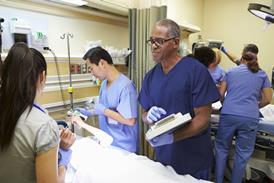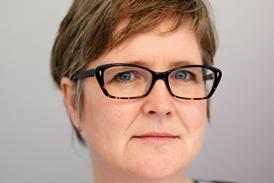Recruiting more hospital nurses could ease pressure on acute trusts in the short term, but what the NHS really needs is balanced investment in staff across all settings
The health and social care system may fail again and again to prevent people becoming acutely ill, but patients and carers can still be reassured by the sight of a well staffed hospital ward and conclude that the service is doing its job. It is a dangerous fallacy.
‘There is little sign of the NHS shifting its centre of gravity away from the hospital’
Does the NHS need more nurses? There is plenty of evidence that increasing their number will help meet the challenges ahead. Nursing has proved it is an adaptable profession, which will enthusiastically embrace change when it can be seen to be good for patients. Nurses’ ability to work well in multidisciplinary teams is an example to many professions.
Does the NHS need more hospital nurses? Again the answer, in the short term at least, must be yes. The community services that will slow the increase in demand to manageable levels have not yet been put in place.
- Leader: The UK needs to be attractive to overseas health staff
- Exclusive: Majority of hospital trusts missed their own nurse staffing targets
Does the NHS need more hospital nurses if it means not being able to afford the development of those alternatives to acute hospital care? That is a much harder question to answer – unfortunately it is the one facing the service.
Get the balance right
The fallout from the Francis report has driven a steep rise in nurse recruitment. However, HSJ research has shown most NHS acute trusts are still falling short of their own staffing targets and that, therefore, more recruitment and considerable investment will be required.
‘The hospital ward nurse is now reaching something close to “protected status”’
Meanwhile, the number of nurses working in the community, or indeed in any role outside the ward environment, is stagnating. Allied health professionals, whose contribution many recognise as crucial to a more responsive NHS, also struggle to grow their ranks. There is little sign here of the NHS shifting its centre of gravity away from the hospital.
The hospital ward nurse is now reaching something close to “protected status”; the group’s numbers a talisman for ministers, regulators trust boards and – by osmosis – the media and the public. But without better attempts to balance investment in other staff groups, the thickening ranks of hospital nurses may eventually prove little more than a psychological sticking plaster.



























9 Readers' comments